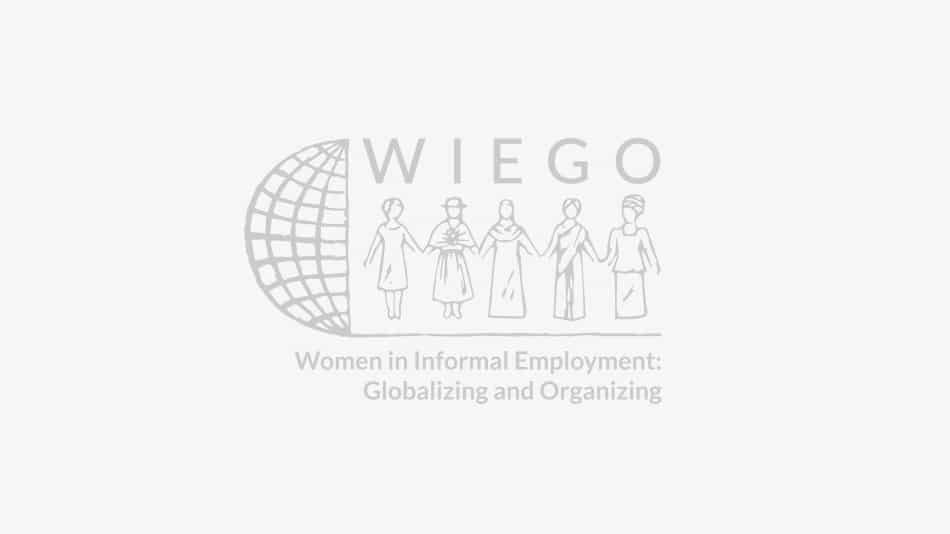Some years ago, the world embraced biodiversity. Today, the world needs to also embrace economic diversity — a hybrid economic model that allows the smallest units and least powerful workers to operate alongside the largest units and most powerful economic players. Both are needed for sustainable and inclusive growth.
Informal employment is a widespread feature of today’s global economy, representing 61 per cent of all workers globally —
- 90 per cent in developing countries
- 67 per cent in emerging countries, and
- 18 per cent in developed countries —
for a total of 2 billion workers.
On average, informal workers have lower earnings and face higher costs and risks than formal workers. Policies should seek to increase the earnings and reduce the costs and risks of the working poor in the informal economy.
In its 2002 report "Decent Work and the Informal Economy," the International Labour Organization (ILO) said the goal is to reduce the “decent work deficits” of informal workers, who tend to experience greater deficits than formal workers in four dimensions of the ILO Decent Work agenda: economic opportunities, rights at work, social protection, and social dialogue.
The following is a brief summary of the policy discussion in The Informal Economy: Definitions, Theories and Policies (PDF; WIEGO Working Paper No. 1, 2012) by Martha Alter Chen.
The Formal Regulatory Environment
Over-regulation creates barriers and costs to those operating informally, just as it does to those operating formally. Deregulation, whether in financial, product or labour markets, can lead to increased informalization. The lack of a regulatory environment, common in the informal economy, can also be costly. For example, few cities have adopted a coherent policy towards street trade, choosing either to ignore it or to try to eliminate it. Both stances have a punitive effect: harassment, confiscation of goods and.or the demand for bribes by police, municipal officials and other vested interests and evictions.
In today’s global economy, many wage workers are caught between contradictory trends: rapid flexibilization of the employment relationship (making it easy for employers to expand or contract workforces as needed) and slow liberalization of labour mobility (making it difficult for workers to move easily across borders). And many self-employed have to compete not only in domestic markets but also for export markets and in supply chains.
But existing laws, policies and regulations are premised on formal employment and commercial relationships. They are biased towards formal workers and formal enterprises.
Policymakers must determine what labour, commercial and other laws and policies are appropriate to — as well as fair and enabling for — the informal self-employed and informal wage workers, respectively.
A Comprehensive Policy Framework
Both economic and social policies have a direct impact on the informal economy. While no single prescription can address the concerns of all categories of informal enterprises, activities, or workers, there is a growing consensus that a comprehensive policy framework should entail four broad goals:
#1: Create more jobs, preferably formal jobs, through labour-intensive growth – Some argue this can be done through employment policies alone; others believe that employment goals must be integrated into development strategies. Some also contend that the overall structure of employment opportunities must be transformed to allow the working poor to take advantage of available opportunities.
#2: Register informal enterprises & regulate informal jobs – Registering and taxing informal enterprises should be done by simplifying bureaucratic procedures and offering benefits and incentives in return for paying taxes. Concurrently, appropriate regulations should discourage employers from hiring workers informally—or informalizing existing jobs. Employers should be encouraged to contribute to health coverage and pensions for their workers and extend other workers benefits such as paid sick leave and overtime pay.
#3: Extend state social protection and legal protection to the informal workforce – There is a growing consensus that universal health care and pensions coverage are needed, but there is little agreement on the appropriate role for of government regulation and public expenditure, the mix of public versus private provision, and the source of financing.
There is also a need to extend legal protection to informal workers. The United Nations Commission on Legal Empowerment for the Poor prioritized three areas: property rights, labour rights, and business rights. In most countries, this will require reforming existing legal regimes as informal workers are not covered under existing labour regulations or commercial/business laws. But many informal activities are governed by industry-specific regulations (e.g. those governing trade in fresh food) and undermined by local city-level rules and regulations that discourage or ban informal activities.
Learn more under these thematic areas:
- Inclusive cities and the urban informal economy
- Law and informality
- Social protection for informal workers
#4: Increase productivity of informal enterprises & incomes for informal workers – There are two ways to achieve this. The first is to increase the positives through supportive measures to improve assets and market access, to provide legal identity and rights, to raise productivity, and to improve terms of trade or employment.
The second is to reduce the negatives through measures that reduce risks and address market power imbalances, and that reduce policy or institutional biases which work against informal enterprises. This requires challenging the dominant narratives that stigmatize all informal workers and enterprises as having low productivity or being illegal. It is also crucial to recognize how market power imbalances and policy biases favour large formal enterprises over smaller informal enterprises, formal workers over informal workers, and men over women within these categories.
The challenge is to monitor the impacts of different policies and laws on different categories of the informal workforce and to address the negative impacts.
Learn more about Formalization and informal workers
Informality into the Future
Informal employment is the main source of employment and income for the majority of all workers globally and the vast majority of the workforce in the developing world. Both informal enterprises and the informal workforce need to be valued for their contributions and integrated into economic planning and legal frameworks.
To ensure policy responses are appropriate to the constraints and risks faced by informal workers, especially the working poor, they need visibility in official statistics and representative voice in rule-setting and policy-making processes. Current efforts to improve the measurement of informal employment and informal enterprises in official labour force statistics, as well as other economic statistics, need to be strengthened and sustained.
What is needed, most fundamentally, is a new economic paradigm: a hybrid economic model that embraces the traditional and the modern, allowing the smallest units and least powerful workers to operate alongside the largest units and most powerful economic players. One that allows:
- home-based producers in global value chains to be able to bargain with dominant players in those chains for their rightful share of value added.
- street vendors to operate alongside retailers and wholesalers — alongside shops, wholesale markets, and malls — in central business districts.
- waste pickers to access waste and to bid for solid waste management contracts alongside large corporations.
- informal construction workers to gain some of the protections and benefits of formal construction workers.
- informal transport workers to be integrated on equitable terms in public and private transport systems.
- small holders and agricultural day labourers to compete on equitable terms with large holders and corporate farms. That allows small-scale producers to compete in export markets on fair terms alongside large-scale commercial farms.
Some years ago, the world embraced biodiversity. Today, the world needs to also embrace economic diversity. Both are needed for sustainable and inclusive growth.
Related Reading
Inclusive Cities blog post by Martha Chen (July 2014): “Self-Employed Women in the Urban Informal Economy: Reducing Their Risks and Constraints”
A budget analysis tool developed and tested by WIEGO: Informal Economy Budget Analysis.
WIEGO’s Core Programmes are designed to increase the voice of informal workers through organization and representation and the visibility of informal workers in official statistics and to promote a fair and enabling legal environment, inclusive urban policies, and social protection for informal workers.
The ILO’s Social Protection web portal offers data, tools, publications and news on Social Protection from around the globe.

